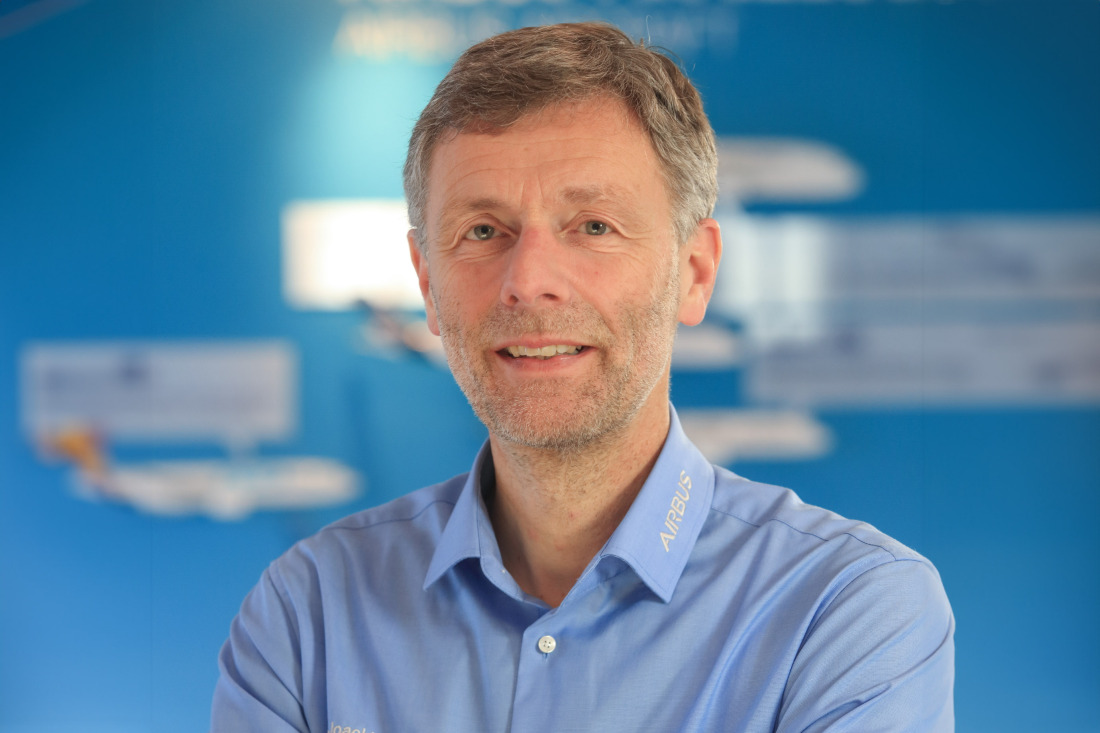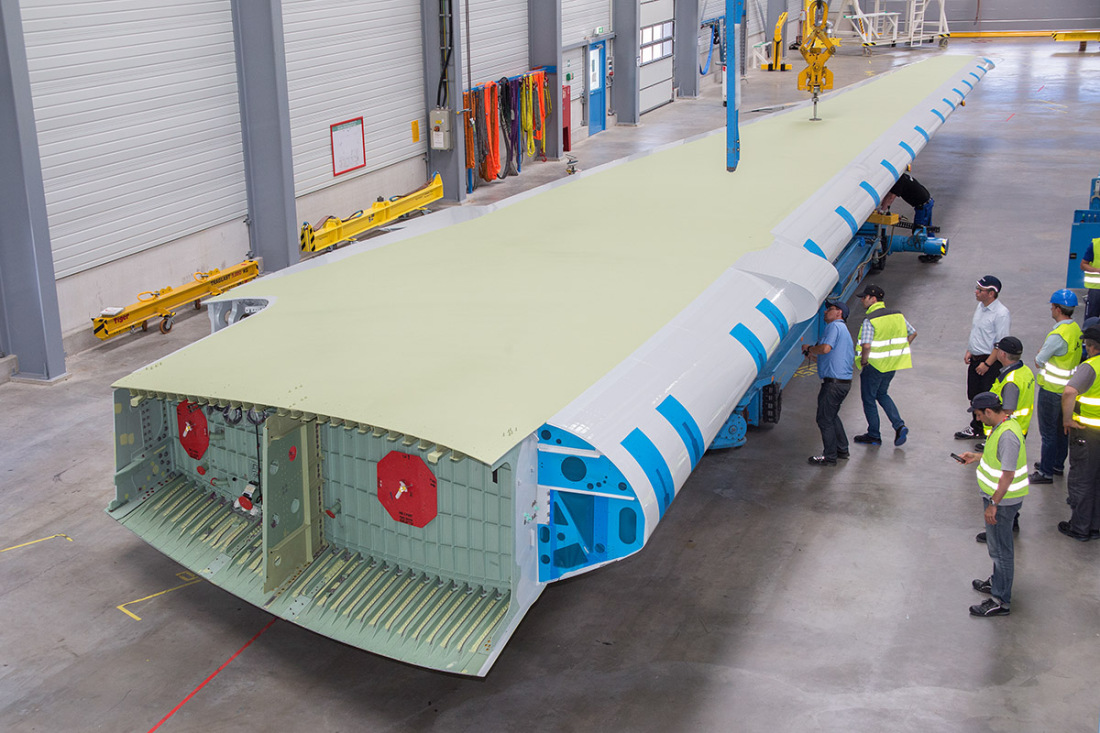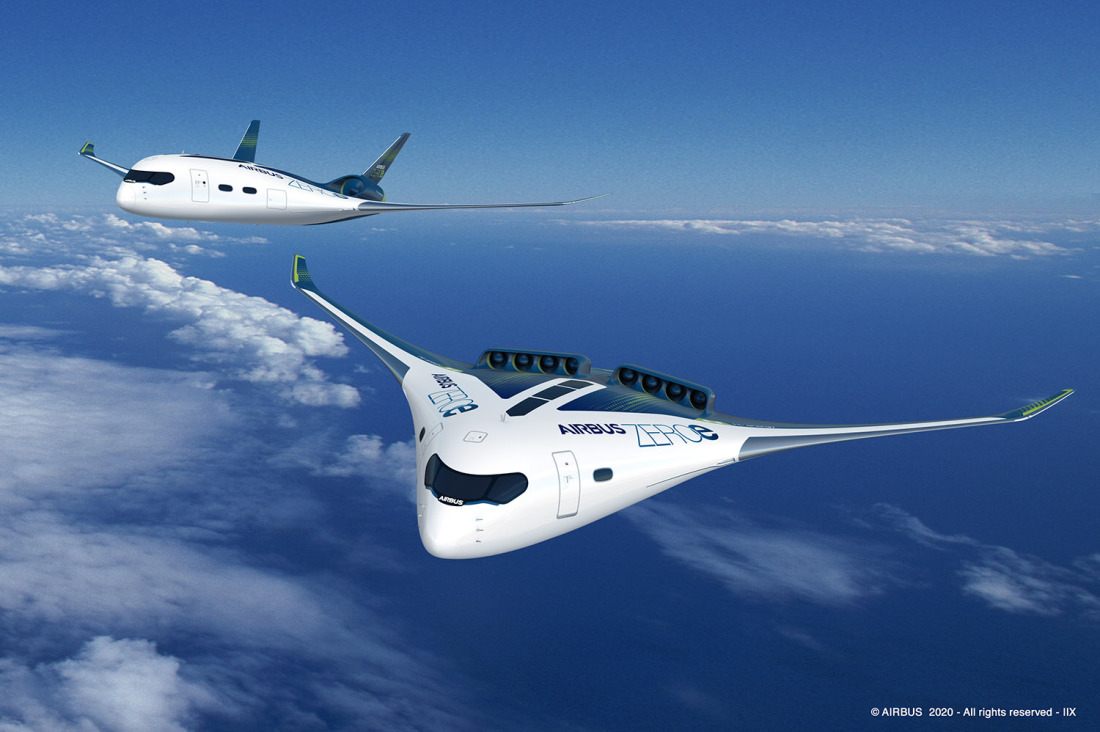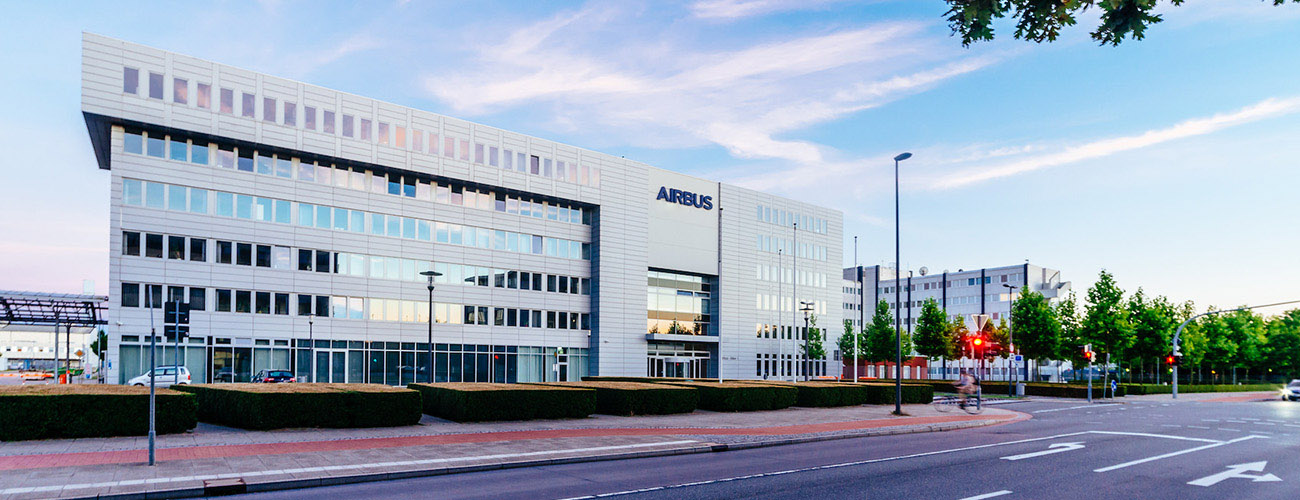"The pioneering spirit of the founders is still present in the very DNA of the site"
AerospaceAirbus in Bremen – a success story
Bremen can look back at 100 years of building aeroplanes on this site. It all started on January 2nd 1924. This was the day on which the company Focke-Wulf Flugzeugbau A.G. opened its doors in Bremen. Today, Airbus, the global market leader, runs the second largest production facility in Germany in Bremen, on the premises that were once home to Focke-Wulf Flugzeugbau A.G. In this Interview, Airbus former site manager Joachim Betker takes a look at the past, the present and the future.
Mr. Betker, Airbus has made a decisive contribution to the history of aviation in Bremen. What do you think have been the pivotal factors for the successes along the way?
Joachim Betker: I am really impressed by the pioneering spirit shown by the founders, which is still present in the company today. You could say, it's in its very DNA. That involves always having the confidence to explore new technologies, take new steps and implement new processes, even in difficult times. The decisive factors have always been the expertise of everyone involved, and of course, having the backing of politics and society as a whole.
Airbus is very well established in Bremen. Is that because its range of activities reflect the particular fields of expertise available here? And what significance do these specialized industrial skills have for the aviation sector?
They are extremely important. We wouldn't be here without them. We work in an international company, and these statements apply to every part of our business. Our commercial aircraft division here in Bremen has a major engineering site, which includes the materials and processes department at the ECOMAT research and technology centre. Cargo-loading systems are also very well represented in both the A400M and civilian sectors. Another area of particular focus is the high lift systems which are an indispensable part of powered flight. Bremen is the only place with this area of expertise. We are also exploring the possibilities of hydrogen-powered flight in Bremen. The very fact that our colleagues who work in the space industry are also close by is a great help to us. These are core competences which reinforce Bremen's importance within the widespread business activities of our international group.

From Airbus's point of view, what will be the most important issues in the coming decades and what will be the consequences for the further development of this site?
We make a substantial contribution to the group as a whole and that's something we're very proud of. Bremen is the only place at which we are working on cargo-loading systems and high-lift systems. The same is true for flight physics, which benefits from the expertise in materials and processes provided by ECOMAT. These are all extremely specialized areas of expertise in the commercial aircraft industry and Bremen is the only site in the group to work on them.
Even the decision to set up ERNO Raumfahrttechnik GmbH here at the end of 1967 was a bold step. Back then, who would have thought that space flight would become so important? Today, we are one of the foremost aerospace locations in Germany.
Airbus site in Bremen
- The Airbus plant in Bremen is where the wings for the A330 and A350 long-haul aircraft are designed and assembled.
- The centre in which the high lift systems used in every Airbus aircraft are developed and produced is also located in Bremen.
- The second-largest Airbus plant in Germany, which has a workforce of around 4,500 employees, plays a vital role in the development and production of the A400M transport plane.
- The cargo-loading systems used by the entire Airbus fleet are also developed in Bremen.
- Material and process development teams at the ECOMAT Center for Eco-efficient Materials and Technologies are also currently investigating and implementing new technologies.
- The Airbus plant in Bremen is also intensively involved in exploring the use of hydrogen for the "green-flying" aircraft of the future.
Airbus in Bremen works closely with a number of different partners such as Bremeninvest, for example at the ECOMAT research centre. From Airbus's point of view, what are the potential benefits of this kind of cooperation in Bremen?
ECOMAT is a prime example of how well political organisations, university departments and Airbus can work together. There are many different partners at ECOMAT. By making its extensive laboratories available for materials testing, the Centre is perfectly suited to meeting the needs of Airbus and its other partners. The research and development we perform here, together with IFAM, FIBRE and the DLR, are highly recognized both by Airbus and internationally. This is something we are keen to continue.
Bremen is also home to the ZEROe Development Centre where we're developing tank systems that involve a great deal of research effort and material certification when it comes to the components to be used for hydrogen applications. We want to expand what we have, and what has been running successfully for several years at ECOMAT, and concentrate even more intensively on the topic of hydrogen. Discussions about extending the ECOMAT Center are on-going. We've called it the ECOMAT Hydrogen Campus. It's currently in the planning phase, under the management of Bremeninvest.

In view of the improving economic situation in the aircraft construction industry, Airbus intends to create 13,000 new jobs, world-wide. What are these estimates based on and what does this mean for the Bremen site?
In the wake of the Covid pandemic, we're now seeing a recovery in air travel, with an enormous amount of catching-up to be done. The situation for airlines is much improved and the volume of flights is now almost back to normal. For this reason, we have a steady and robust demand for our aircraft. With the intention of adding a total of 13,000 new employees to our group workforce, we have recruited around 3,500 new members of staff in Germany and also in France. The majority of them will be in production and final assembly. We also welcomed more than 100 new employees to our plant in Bremen in 2023.
How difficult is it for you to find enough suitably qualified recruits to cover local requirements and to retain them?
We are in the fortunate position of having a large number of applicants, not just from the State of Bremen and the surrounding area, but also from other parts of Germany and abroad. Airbus has a good reputation as an employer. The young people who apply to work with us are interested in aerospace and aviation, which means we have a relatively good starting position.
Having said that, like many others, we are also affected by the lack of young people, especially young women, who are interested in technical subjects. We are an attractive company and have a relatively high number of candidates from outside the region. However, we are always on the look-out for recruits and want the very best to come and work for us. We are actively involved in recruitment activities in the Bremen region, in other parts of Germany and also internationally.
Would you like to have more support for this in the region?
I believe that inspiring enthusiasm for technical subjects, the MINT disciplines (Maths, IT, Natural Sciences, Technology), is a fundamental issue which has to be tackled by a long-term socio-political approach. Yes, we would like to get more support for this long-term effort.

How do advances in digitization and the increasing use of AI change the requirements and challenges faced by people working in the aviation industry? Are these things that Airbus has investigated?
AI is extremely relevant for our company. Initially, this is with regard to big data and data analytics. However, these things are often conflated: something involving data analytics does not automatically involve AI. We already have a large field of research in data analysis and data processing and the next step is then AI, which we are also investigating.
Are you conducting your own research into qualification profiles for future employees in this context?
Yes, we've modified our educational profiles. This year, we're employing 70 trainees and people participating in dual study courses. In total, we have more than 250 young people who are either being trained by us or are dual study students. In recent years, we have once again placed greater emphasis on IT as part of our training programme. Over the years, we've trained 50 young people in this area.
Airbus offers the major benefit that employees can combine their skills in aircraft engineering and IT. This is an attractive prospect for many people who work in IT but also want to see an actual product. There are a wealth of opportunities for this in Production, Engineering and Testing.
Bremen can look back at 100 years of aircraft construction. Will you also be celebrating this at Airbus?
On June 2nd 2024, we will open our doors to our employees and their families so we can all see what goes on here, together. This will be the "birthday party" with our employees. On February 29th, we'll invite everyone in our sector's community in Bremen to join us at City Hall to celebrate the centenary of aviation and aerospace activity, at an event hosted by our Board of Management and the Mayor.
Thank you for talking to us, Mr. Betker!
Success Stories
The history of space travel in Bremen
Small circle, big impact: With the founding of the “Development Ring North” (ERNO) in July 1961, Bremen began its development into one of the world’s leading spaceflight locations. Even the return of humans to the Moon would hardly be possible without technology from the Hanseatic city.
Learn moreHow a space enthusiast campaigns for women in STEM fiels and Bremen as a space location
How does someone from a small village in Poland end up working on human spaceflight in Bremen? Dr. Anna Chrobry shares her journey through science, passion, and perseverance—and explains why she proudly calls herself a "space girl."
Learn moreVisions for the future of aerospace
From car navigation systems to weather reports - hardly anything works without satellites. They need fuel, but this is often toxic. The Institute of Aerospace Technology at Bremen University of Applied Sciences is researching environmentally friendly alternatives. What the future of space travel could look like.
Learn more

